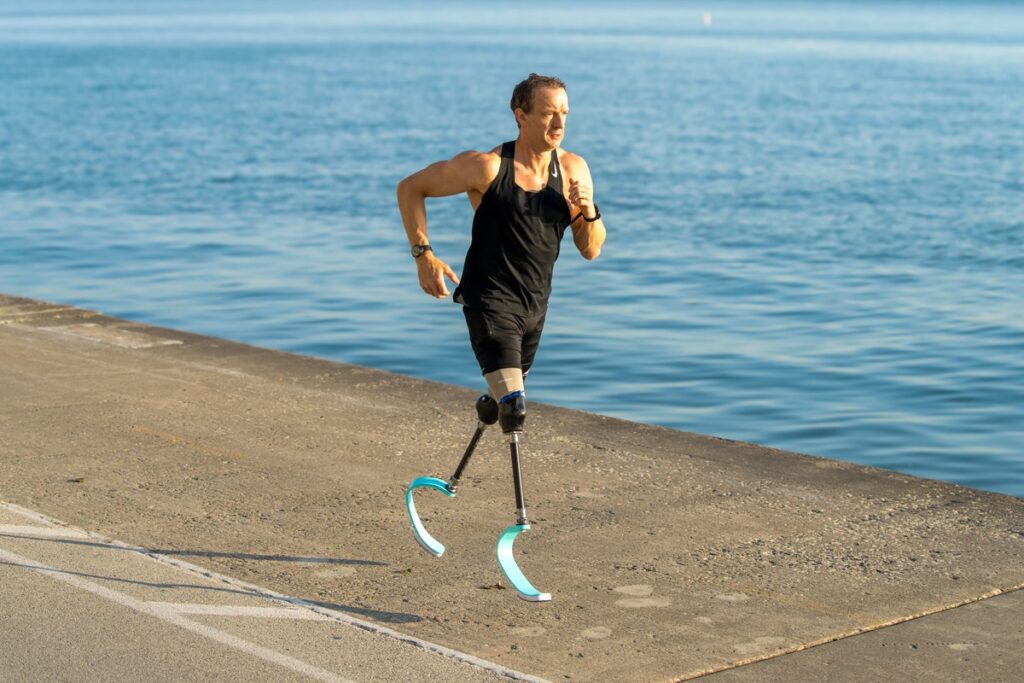Richard Whitehead Completes Original London Marathon to Promote Grassroots Running
In a remarkable demonstration of perseverance and dedication, double gold Paralympic athlete Richard Whitehead has successfully completed the historic London marathon route as part of a year-long challenge aimed at supporting grassroots running. This initiative is a part of Whitehead’s ambitious goal to run 20 marathons across the globe by 2025, leading to a total of 100 marathons in 21 years. His inspiring journey not only highlights his personal achievements but also aims to uplift the broader community of runners.
A Historic Route with a Purpose
Whitehead took on the iconic marathon route starting from Windsor Castle, passing through picturesque locations including Eton, Slough, Harrow, and Wembley before reaching the now-demolished White City Stadium in west London. This path is significant as it retraces the original 26.2-mile marathon distance first executed in London during the 1908 Olympic Games. By participating in this historic event, Whitehead aims to raise awareness of the importance of grassroots running and pay homage to the legacy of marathon racing.
Embracing the Challenge
Reflecting on his marathon experience during a conversation with the PA news agency, Whitehead remarked about the enthusiastic atmosphere at the start line and expressed gratitude for favorable weather conditions. He acknowledged the historical significance of the event and emphasized that it sheds light on the grassroots aspect of running, which serves as a foundation for both current and future athletes. “Hearing about the history and the legacy of the event was crucial,” Whitehead noted.
The Trials of Running with Prosthetics
While Whitehead relished the excitement of the event, he also faced significant challenges throughout the run. He detailed that navigating climbs and busy areas like Wembley were particularly demanding, especially while running on prosthetic legs. “For me, it’s really difficult… to be able to navigate some of those conditions,” he explained, underscoring the physical and mental resilience required for his endeavor.
An Inspirational Message for All Runners
Throughout his journey, Whitehead aims to inspire individuals, especially those with disabilities, to engage more deeply with sports and physical activity. He believes that his participation can send a powerful message, encouraging both the disabled and able-bodied communities to be more inclusive and supportive of each other. “Sport is such an incredible thing, whether it’s volunteering, spectating or participating,” he stated, advocating for diversity within the athletic realm.
The Importance of Women’s Representation in Marathons
This year saw the Original Marathon event take place on International Women’s Day, making it even more significant. Diccon Loy, the director of the sports event company behind the marathon, has made strides to honor female runners, as women were not officially allowed to compete in Olympic marathons until 1984. Loy decided to increase the number of participants to 150 to celebrate this milestone, marking a positive step towards gender equality in the sport.
Looking Ahead: Whitehead’s Marathon Legacy
Whitehead is determined to complete his 100th marathon on November 2 of this year, a date that holds sentimental value as it marks the start of his marathon journey in New York City back in 2004. As he continues to break barriers in the world of athletics, the positive impact of his endeavors is felt across both the disabled and able-bodied communities. With his ongoing commitment to inclusivity and inspiration, Richard Whitehead not only strengthens his legacy as a champion athlete but also as a motivating force for future generations of runners.
In a world where the marathon distance of 26.2 miles is celebrated as a benchmark, Whitehead and his companions remind us that every runner’s journey is unique, yet they all converge at the same finish line. For more information on marathons and related events, explore our sports section.
